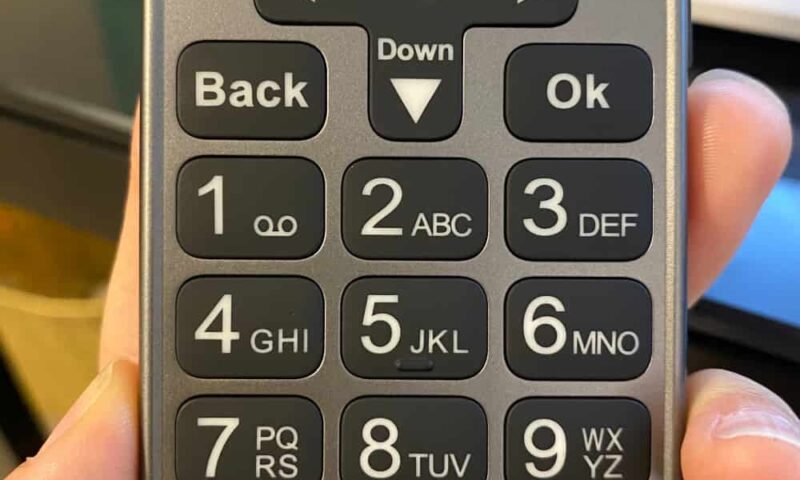(Pictured: For some seniors, phones with large buttons are virtually essential.)
By Onita Mihaly
In today’s rapidly evolving technological landscape, staying connected is more important than ever, especially for seniors. Maintaining social relationships, accessing essential services, and ensuring safety becomes increasingly important. The right communication tools play a pivotal role in empowering seniors to live independently, confidently, and with a sense of belonging.
Accessibility is a key consideration when selecting phones and other communication devices for seniors. As vision and fine motor skills may decline with age, it’s essential to choose phones with features that accommodate these changes, including:
- Large, programmable buttons. For easy navigation and visibility.
- Adjustable ringer and speaker volume. To ensure clear conversations.
- Emergency buttons. For quick access to help, including 9-1-1.
- Multiple cordless or corded phones. Place throughout the house for easy access, especially helpful in emergencies. Unlike mobile phones, one always knows where they are.
Safety and scam protection are paramount for seniors, and communication tools play a vital role in ensuring their well-being. Look for phone services offering:
- Robust scam call blocking, including option to only allow calls from pre-approved numbers to go through.
- Caller ID verification.
- Scam alerts helping seniors recognize and avoid potential threats.
- Automatic notifications to loved ones in emergencies.
- Address-based 9-1-1 for faster response times, especially if one’s unable to speak. This is particularly important for those living in apartment buildings or senior communities.
Internet-based phone service can also be a reliable backup option in case of mobile carrier outages or if cell coverage is spotty inside the home.
Many seniors face the challenge of traditional landline service being phased out. A reliable and cost-effective alternative is Voice over Internet Protocol (VoIP), which uses the internet to make and receive calls. VoIP providers often offer free nationwide calling with only applicable taxes and fees, making it an attractive option for seniors on a budget; and the ability to keep existing phone numbers.
Family Communication: Bridging the Digital Divide
Other tips to help loved ones navigate the digital divide include:
- Start slow, offer support. Gradually introduce new technology and provide hands-on assistance.
- Involve seniors in decision-making. Respect their preferences and needs and consider their comfort level with technology.
By equipping seniors with the right communication tools, families can help them stay connected, safe, and independent. With the right guidance and support, seniors can embrace modern technology and enhance their quality of life.
Remember, staying connected is an ongoing process. As technology continues to evolve, it’s important to stay informed and adapt. By providing ongoing support and encouragement, families can help seniors embrace the digital world and enjoy all the benefits it has to offer.
Onita Mihaly is a brand-marketing expert for Ooma, a provider of communication solutions (https://www.ooma.com/home-phone-serviceseniors/)
